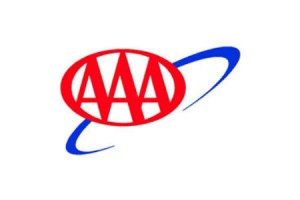
Gas prices nationwide are climbing closer to the current 2014 peak of $3.70 per gallon experienced on April 28, 2014. What’s more alarming, is that motorists may very well watch gas prices surpass the 2014 spring peak in the days ahead. As of today, the national price of a gallon of gasoline is just four cents shy of the current 2014 peak at $3.66 per gallon, while the Commonwealth of Virginia is only six cents lower than the current 2014 peak at $3.46 per gallon.
This time last year, motorists were paying less at the pump while gas price trends were sloping downward. The recent turmoil in Iraq is likely to prevent that trend from repeating this year. Escalating tensions in Iraq married with higher than expected demand contributed to the surge in the price of crude oil, closing at $106.90 on Monday, June 16, 2014.
“It’s never the right time to see gas prices rise, however the timing could not be worse for motorists as we get closer to the July 4th holiday,” said Martha Mitchell Meade, Manager of Public and Government Affairs for AAA Mid-Atlantic. “For many travelers, this could mean a quick change of plans to stay closer to home and avoid the dreaded pain at the pump,” continued Meade.
The good news, however, is that with gas prices on the rise, Virginia still proudly boasts as the 7th lowest in the country to purchase gasoline. For our neighbors in the District of Columbia, the story is unfortunately quite the opposite as it is the 11th highest in the country to buy gasoline and 20 cents higher than the national average.
AAA offers the following fuel savings tips for motorists frustrated with high gas prices:
- Accelerate gradually. Avoid jackrabbit starts.
- Anticipate your stops. When approaching a red light, let your foot off the gas as early as possible.
- Avoid long warm-ups in the morning. They’re unnecessary and waste fuel.
- Use air conditioning. Today’s air conditioners create less drag on the engine than driving with the windows open.
- Maintain recommended tire pressure. Low pressure reduces fuel economy and can damage tires.
- Keep the air filter clean. Clogged filters reduce fuel economy and increase exhaust emissions.
- Slow down. If you travel at 60 mph instead of 70 mph on your 20-mile highway commute, you would save about 1.3 gallons of gas in a five-day work week.
- Combine errands. If possible, park in a central spot and walk from place to place.
- Don’t use your trunk for storage. The heavier your car, the more fuel it uses.
- Shop around for the best price. Gas prices can vary tremendously, which means it can pay to use the AAA mobile app to find the cheapest gas station near you.










